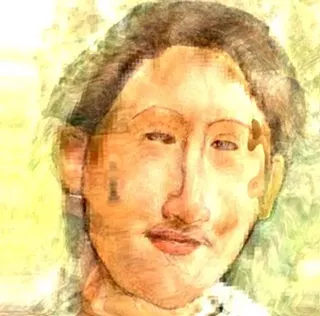For the record, it's an operetta. Bernstein's two previous shows had been Broadway all the way, Tin Pan Alley given a sort of Prokofiev kick. But for Candide, which premiered in 1956, Bernstein wrote music that both parodies and embraces the conventions of European operetta, more Offenbach than Johann Strauss. The score is gloriously tuneful and lively, yet highly sophisticated and, in spots, treacherously difficult to sing.
It's a perfect setting for a script based on Voltaire's 1759 book, in which a satire of the Leibnizian philosophy of optimism and a skewering of conventional pieties masquerade as a rollicking picaresque novel. Candide is a naïve young man trained by his teacher, Dr. Pangloss, to believe that all's for the best in this best of all possible worlds. Even when someone meets an untimely death, Pangloss assures us, it's for the best, because the victim has been saved from the possibility of an even more grisly fate later.
Candide's optimism is challenged when he is separated from his beloved cousin, Cunegonde, and catapulted across Europe, dragged around South America and bounced back more or less where he started. Along the way, he is abducted, flogged and repeatedly swindled in high style. Candide witnesses the traumas of, in ascending order of horror, the Seven Years' War, the Lisbon earthquake, the Spanish Inquisition and Cunegonde's Farrah Fawcett wig, but it takes a long time for his optimism to falter.
In the end, Candide straggles back to what's left of his estate and decides that the best one can do is settle down to a simple life, work quietly and assiduously, and cultivate one's own garden. It's sort of a cross between the Protestant work ethic, Rousseau's back-to-nature movement and proto-socialism. You can tell the book is a laff a minute.
Really, it is, but as outlandish as Candide's adventures may be, Voltaire's style is mordant and low-key. The failure of the 1950s stage version of Candide is universally attributed to Lillian Hellman's heavy-handed adaptation, which was preoccupied with McCarthyism and Eisenhower-era complacency. The stage work has undergone many revisions since then, and several different versions, each with something to offer, are currently circulating.
Arizona Repertory Theatre is employing the fully stageworthy and properly effervescent 1973 version, the book adapted by Hugh Wheeler and the lyrics assembled by the motley crew of Richard Wilbur, Stephen Sondheim and John Latouche. (Earlier contributions from Dorothy Parker and James Agee were jettisoned early on.) Personally, I prefer the 1982 "opera house" version, simply because it contains more music, but the 1973 treatment is tighter dramatically, and it doesn't omit any really essential numbers.
The Arizona Repertory Theatre production leaves almost nothing to be desired. The leads are all undergraduates, but they sing with aplomb, and everybody onstage has a secure grasp of character.
Let's start with Stefanie Brown as Cunegonde. She turns in a spectacular performance of the show's big hit (not counting the overture), "Glitter and Be Gay." This is, among other things, a parody of Gounod's "Jewel Song," full of coloratura acrobatics, and Brown negotiates the musical frippery and hits those nine high E-flats with ease, even while making the psychological transitions believable.
The Candide, Jesse Turtz, also has a fine voice, though it's not required to do anything so ostentatious, and he manages to convey boyish innocence without coming off like an idiot--a real trap in this role. Richelle Meiss steals every scene she's in as the Old Lady, a not-so-smooth operator of indistinct heritage, as is evident from her song "I Am Easily Assimilated." The character is more or less Polish, but Meiss concocts a wild accent that's part Spanish, part Hungarian, part Yiddish and entirely hilarious.
Christopher Violett plays a despotic Latin American governor with the same panache, but less menace, evident in his portrayal of Cousin Kevin in last season's Tommy. In other important roles, John Jeffords and Rebecca Angel display fine stage presence and good comic timing. The same can be said of the entire chorus, which sings beautifully.
The hero of opening night was understudy Jonathan Kobritz, who stepped assuredly into the significant roles of Voltaire and Pangloss while also handling several smaller but highly colorful parts. His characterizations were distinct and his transitions seamless, and his only fault was chanting, Rex Harrison-style, through the ensemble number "Best of All Possible Worlds." There's precedent for this, but the call-and-response structure of the music really requires Pangloss to sing.
Director Harold Dixon maintained a suitably manic pace, inspired, I think, by Hal Prince's handling of the 1973 revival, but Dixon shows proper restraint at key points where, according to accounts I've read, Prince went over the top. Dixon treats Candide and Cunegonde's reunion scene seriously though not humorlessly, and his direction of the big spine-tingling finale, "Make Our Garden Grow," is absolutely sincere, simple and moving.
Kyle Schellinger and Patrick Holt have provided costumes that range from realistic to delightfully absurd, and Clare P. Rowe designed a set that makes full use of the black-box theater on multiple levels, while keeping almost all the action visible from most seats.
The 16-piece instrumental ensemble wasn't up to these standards on opening night. The reduction of the brilliant orchestration was regrettable to begin with; add some uncertain intonation and amplification that distorted balances and turned everything shrill, and the performance of the overture was simply wretched. Things did improve after that, so it can safely be said that almost all's for the best in this best of all possible operettas.









